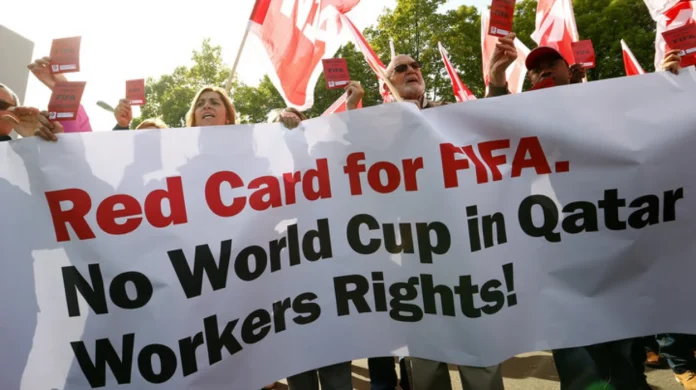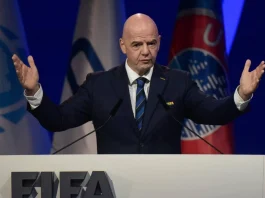In May 2015, a cross-border sting operation saw senior executives of FIFA taken into custody in Zurich over charges of bribery, racketeering, and fraud; there was an international flap over the governance of international football. As FIFA hosts an expanded sporting program in 2025, the fact remains that football is, once again, facing the same questions about whether or not the organization has actually changed after all or this is all skin deep. Although certain improvements are being made, under the level of regulation, FIFA still faces criticisms concerning its level of transparency and integrity amongst the different stakeholders, watchdogs, and former insiders of the company.
The organization’s credibility, once severely damaged by the wide-scale investigation led by the U.S. Department of Justice, has not fully recovered. False, the effects of the corruption issues that alarmed FIFA is its response to the problem by implementing restructuring of governing bodies, implementation of compliance structure and encouragement of developmental programs.
Governance Reforms Since 2015: Progress or Illusion?
Structural Adjustments and New Frameworks
Since 2016, the reforms to the governance structures of FIFA have increased the size of the FIFA Council and restricted terms of office of senior appointments. The opening of the FIFA Foundation, which is a plan to re-invest the illegally obtained funds back into the global development projects, represented a show of restitution. To date, funds worth more than 200 million have been set aside to offer community based football development projects by the year 2025.
On the administrative side, sports modifications in using rules on the field have helped in enhancing transparency during games, and this has been appreciated by athletes and spectators. Nevertheless, these superficial reforms are in contradiction to more fundamental issues related to the process of managing conflicts of interest within FIFA, investigating misconduct cases, and implementing its own rules.
Persistent Ethical and Investigative Weaknesses
Even the FIFA Ethics Committee, which is considered to be one of the pillars of reform, is still ready to be influenced by politics and is not entirely independent in practice. The whistleblower accounts, records and similar reports reveal that investigations into wrongdoings are usually suppressed when they target high ranking officials.
According to Miguel Maduro, who was chairman of the FIFA governance committee, the entity still abides by a culture of selective complaint, a situation whereby some players comply with the rules at other times not because they have to but because it does not affect the political repercussions.
Power Concentration and Leadership Dynamics
Infantino’s Legacy of Centralized Control
Since 2016, under the presidency of Gianni Infantino, who makes his diagnosis look backward and preaches modernization and integrity as the key to FIFA in the future. It is said that his leadership has continued to consolidate decision-making in a small inner cabinet-namely the Bureau of the FIFA Council-at the expense of democratic participation by the greater number of member federations.
As Infantino has presided over the commercial growth of FIFA operations, such as new international tournaments and new media rights, most of the undertakings have failed to undergo any form of transparent bid to award. Reforms initially aimed at diffusing power risk being rolled back through renewed centralization.
Patronage and Federation Politics
The reinstitution of traditional standing committees and proposals to adjust term limits for senior leaders signal a drift back toward patronage and entrenched governance practices. Several member federations, particularly in underrepresented regions, report limited influence in strategic planning, further marginalizing reform voices at the grassroots level.
Such practices undermine FIFA’s claims of equal representation and global inclusion, which were central to its reform narrative post-2015.
Financial Oversight and Commercial Integrity
Auditing Shortcomings and Unresolved Investigations
FIFA’s financial integrity apparatus has seen some expansion through dedicated compliance and auditing functions. Nonetheless, it is enforced in spates. Media rights and sponsorship contracts that are usually ambiguous in their format are constantly viewed as a potential conflict of interest and poor representations of due diligence.
Even though some illicit streams of revenue were spotted and redirected into the restitution mechanism, some of the major corruption scandals did not lead to sanctions, fines and publicity. Such a lack of responsibility undermines confidence in the management within FIFA.
Fair Play and Club Governance
Financial Fair Play (FFP) regulations which were supposedly introduced to enforce financial discipline amongst the clubs have not had the desired traction internationally. Due to loopholes in how things are implemented, elite clubs move around spending limits, distort competitive balance, and worsen the query whether FIFA could effectively manage its ecosystem.
Technological and regulatory drawbacks are also found in the Transfer Matching System that is intended to oversee the international player transfers. There have been unfulfilled promises of receiving updates in 2023, leaving the opportunity to make non-transparent transactions and to get interfered with by third parties.
Impact on Football Development and Global Equity
Uneven Benefits for Emerging Regions
Though the claims of increased accessibility to the sport have been expressed, most of the financial awards granted by FIFA to the developing federation continue to be dogged by untransparent formulas of pay out. Multiple studies released in 2025 also indicate the way money to be used in infrastructure and training in Africa, South Asia, and Central America ended up being misused or misappropriated by the respective countries without the control of FIFA.
The pillar of reform that has been receiving a lot of publicity which is women football is yet to pick up with regard to budgetary allocation as well as structural investments. While FIFA has launched promotional campaigns, the lack of proportionate funding or professionalization structures reveals the limited scope of its equity ambitions.
Reputation vs. Reality for Fans and Players
Among players, especially those from underrepresented nations, frustration is growing over what is perceived as FIFA’s disconnect from on-the-ground realities. Global football supporters similarly express concern that the organization remains more interested in commercial expansion than in preserving the spirit of fair play.
FIFA’s continued emphasis on mega-events, like the 48-team World Cup and expanded Club World Cup, has been interpreted by




